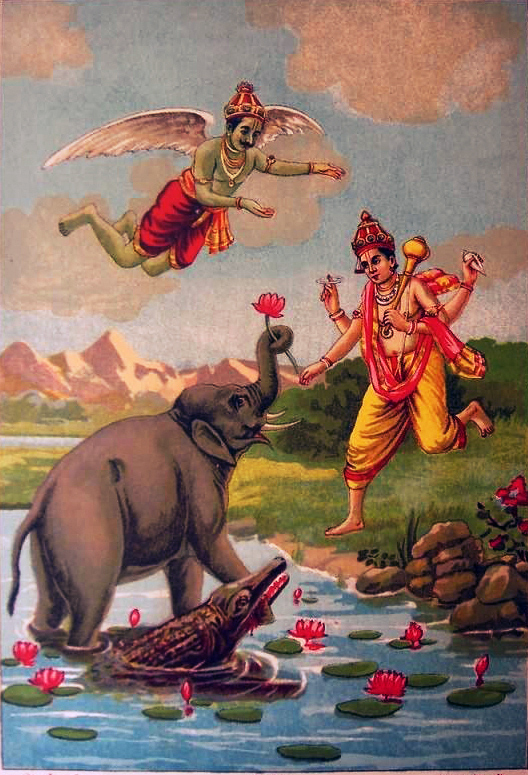Karma means actions or work. The present enjoyments or sufferings are the results of our past doings. The future is in our hands. Time never stops. We are allotted our current day, and each and every moment of today should be well spent so that we enjoy better results in the forthcoming days. Sometimes we feel failed. Certainly, there would be one or more reasons for the failure. Experience is the best teacher, and talent must be developed on solitude. Character enhances the popularity in the company of like-minded people. Swami Vivekananda declares, nothing is impossible in this world, hence one could succeed in his endeavor if tried again and again, following the path of Dharma.

There are three types of actions, which are classified based on time. Routine type works are called Nitya Karma. Casual type works are called Naimittika Karma and desirable type is called Kamya Karma. These classifications are elaborated in Bhagavad Geetha and most of the Upanishadic books. Veda Vyasa Rishi himself found it difficult to distinguish between some works or actions to decide whether they are good or bad, to be done or not. It is reflected in the following verse written by him:
किं कर्म किमकर्मेति कवयोप्यत्र मोहिताः । गहना कर्मणो गतिः ॥
Let us take an example of reading. One is allowed to read Bhagavad Geetha or Bhagavatha daily or at a fixed convenient time as Nitya Karma. Sleeping, taking food or bath are also routine works. Reading daily purifies the mind just like a holy ritual. Cleaning premises, monitoring the education of children, maintaining vehicle are all routine obligations. When a new currency note is brought into use by the Government, we want to read it, both sides of it. This reading is Kamya Karma, an action or work arisen by desire. An invitation received by mail for marriage or a notice inviting a tender published in the website is casual item and we may read it casually. The wedding is a reason for reading the invitation. Bidding the tender is the reason to read the NIT (Notice Inviting Tender).
As per the tradition, inside the home, reading of Garuda Purana or Saptashati Devi Mahatmya is not allowed unless it is advised by a learned person. That is also, the reading of such books should be by an outsider to his family. Reading of the Garuda Purana book is reasonably advised, when a sudden demise of any family members occur. Trikala puja is the three times worship of mother Goddess, Devi. Initially, in the morning, few girl children, less than eight years in age, with good health, are worshipped to their satisfaction with provision of dress, fruits and small cash as gifts. Thereafter, the learned person invited for reading the book starts reading the Sanskrit Saptashati Devi Mahatmya containing the seven hundred verses. The reading is to be heard by the family members. After reading during the day, such books are kept in good condition in some undisclosed location. This system is prevailing, being continued even today also, starting from the time immemorial. These actions of reading and hearing are called Naimittika Karma.
There are four classifications of the performances of Karma which are based on places causing to get virtues. Manual works like providing grass, fodder to the milk providing cow, and its calf, have the highest consideration of virtue in our country. This work is called Gograsa or Dharmika Karma. Whenever some goods or services are received, from somebody, the price must be paid to its provider. In case if it is received free, then Tarpana should be offered in the evening prayer. Such actions are called Rina vimochana or Arthika Karma. To donate land or build chaultries (Dharma chatras) for students or pilgrims is considered as Punya Karma. The virtue of the donor of the land or construction provider, accomplishes high value. Highest quantum of virtue of a man is bestowed upon him for the donation of a cow with a calf. This is called Godana.
After installing an idol of God, a lamp is lit and kept near to the idol. The burning flame of the fire, level of oil and condition of the wicks are always maintained in live status. Such lamp is called Nanda Deepa. It would be steadily burning for one year. This is a special service to God. Some people worship such ever-lit lamp in the house and some are in temple.
People should always show kindness to other people living in the society. Virtue is called punya. The Punya Karma doer gets justified for having a happy and prosperous life. Assisting a man in need certainly bestows virtues upon him.
In our mythology, there are two angels continuously monitoring our actions. One is Chitra and the other one is Gupta. The virtues gained are stored in the planet Jupiter, called Guru. By disturbing other living beings on earth, causing pain to the heart of others, accounts in the increase of sins. The planet Saturn (Shani) is the store house for the sins committed. Moon is the monitor of heart and provider of pleasures. In due course of time, both the virtues and sins get accumulated and the person may be experiencing life according to his credits.
Knowledge is power. Hence people should strive to have more knowledge about Dharma and perform Karma accordingly. In times of sufferings, one is free to consult an astrologer to get rid of sufferings. The astrologer analyses the credits of sins and advises to proceed on right way so that sins may be decreased and virtues may be increased. Due to ignorance, sometimes one may have committed sins but God receives prayer from any living beings.
After defeating Vali, in Ramayana, Shree Rama advises him to seek pardon, to offer redemption and keep him living, giving the example of one elephant and crocodile. The elephant is the strongest animal on earth. One day when it crosses River Ganga, one crocodile has plucked its rear leg. Crocodile is powerful inside the water. The elephant could not escape. It feared of death and immediately remembered God Vishnu. It offered one lotus flower to him when God Vishnu appeared before it. God Vishnu was pleased and redressed the grievance of that elephant, immediately by driving the crocodile away. The elephant went to the forest happily. Thus, Shree Rama explained to Vali that he may also be forgiven if he desires so. But Vali desired a noble death being offered from Shree Rama since after seeing the God, face to face, it is a better choice, to use the unique chance. These stories encourage any people in distress to pray to God and lead a peaceful and happy life in future, by his blessings.
Stories from Ramayana, especially of God Shree Rama would appear in this website on coming days. To browse stories of God Shree Rama, simply type Rama in search bar of gomangala.com as above and click the lens.
Readers may feel free to post any questions on anything. This article being a good message of hope may be forwarded to anybody.

Good
Thank you. Please keep visiting.